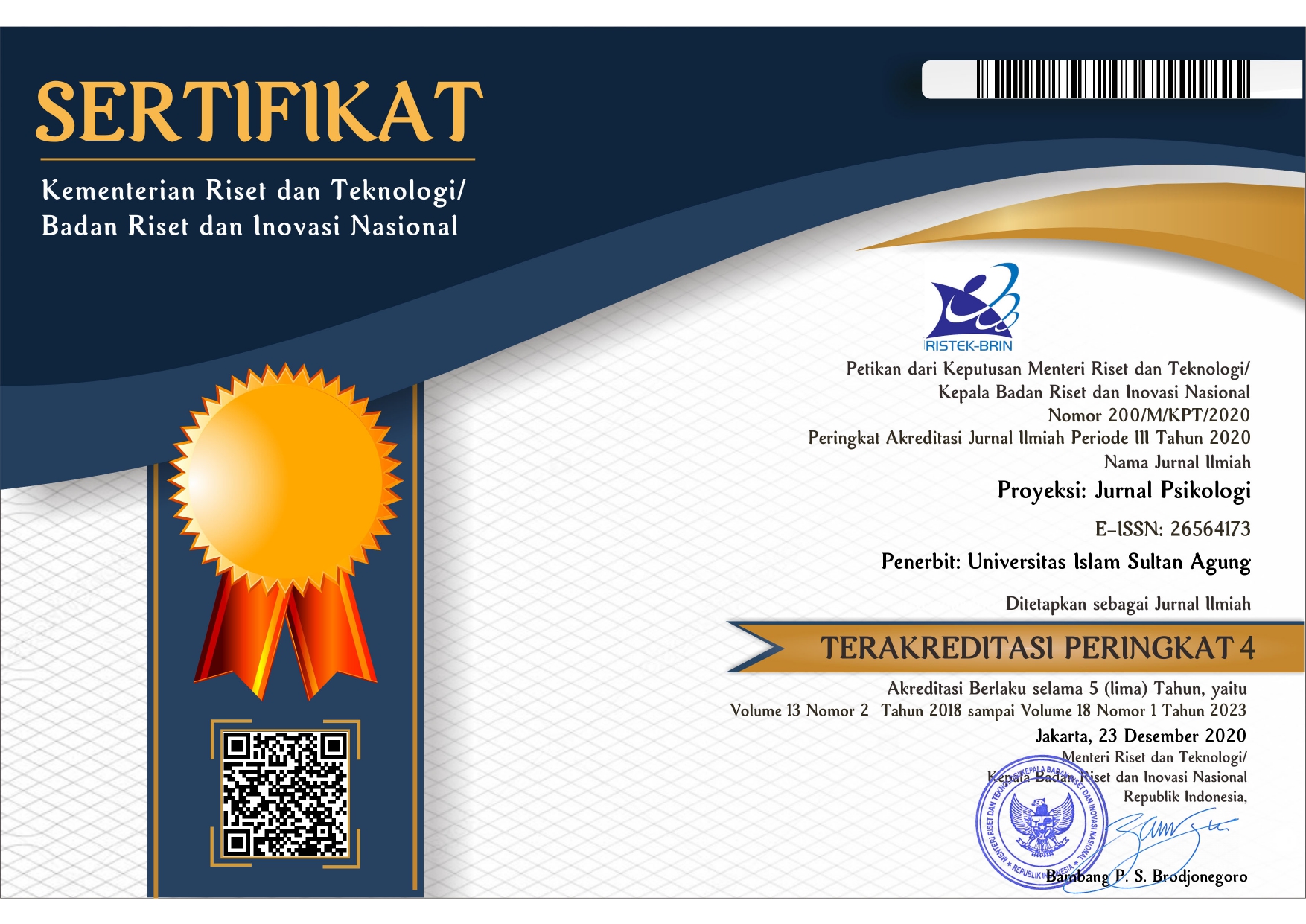PENGARUH METODE PEMBELAJARAN KOOPERATIF (COOPERATIVE LEARNING) DAN MOTIVASI BELAJAR TERHADAP PRESTASI BELAJAR SISWA SMA
Abstract
Peningkatan mutu pendidikan dapat diketahui dari hasil akhir pendidikan, yang dapat dilihat dari output yang termasuk di dalamnya adalah prestasi belajar. Banyak hal yang turut berpengaruh pada prestasi belajar siswa, diantaranya adalah motivasi belajar siswa dan metode pembelajaran yang digunakan. Penelitian ini bertujuan untuk menguji apakah ada pengaruh metode pembelajaran kooperatif (cooperative learning) dan motivasi belajar terhadap prestasi belajar siswa SMA. Hipotesis penelitian ini adalah ada pengaruh yang signifikan dari metode pembelajaran kooperatif terhadap prestasi belajar siswa SMA, dimana kelompok siswa yang dikenakan metode pembelajaran kooperatif memiliki prestasi belajar lebih tinggi dibandingkan dengan prestasi belajar kelompok siswa yang dikenakan metode pembelajaran tradisional. Subjek dalam penelitian ini adalah siswa-siswi kelas X-3 dan kelas X-4 salah satu Sekolah Menengah Atas (SMA) di Yogyakarta. Kelas X-3 diberikan pembelajaran Bahasa Indonesia dengan metode pembelajaran kooperatif teknik Jigsaw, dan kelas X-4 diberikan pembelajaran Bahasa Indonesia dengan metode pembelajaran tradisional. Penelitian ini merupakan penelitian kuasi-eksperimen dengan desain control group pre-test-post-test. Adapun alat ukur yang digunakan dalam penelitian ini adalah hasil modifikasi Skala Motivasi Belajar yang dibuat oleh Hasanah (2006), dengan total aitem sebanyak 60 aitem yang terbagi dalam tiga aspek, serta alat untuk mengukur hasil belajar Bahasa Indonesia pada siswa, yakni dengan Tes Hasil Belajar Bahasa Indonesia, dimana pada tes hasil belajar ini berisikan materi paragraf dengan pertanyaan sebanyak 36 butir soal. Tes hasil belajar ini disusun sendiri oleh peneliti dengan mengacu pada silabus yang digunakan oleh guru yang bersangkutan. Hasil analisis menunjukkan t sebesar 0,257 dengan p=0,798, memperlihatkan hasil yang tidak signifikan (p>0,05), yang artinya bahwa tidak ada perbedaan antara kedua kelompok. Kesimpulan, tidak ada perbedaan prestasi belajar Bahasa Indonesia pada siswa antara kelompok siswa yang diberikan pembelajaran kooperatif dengan kelompok siswa yang diberikan pembelajaran tradisional.
THE INFLUENCE OF COOPERATIVE LEARNING METHOD AND LEARNING MOTIVATION TOWARD ACADEMIC ACHIEVEMENT OF HIGH SCHOOL STUDENTS
Improvement of education quality can be observed from the end result of education, which can be noticed from the output that includes academic achievement. There are many things that effect on student achievement, including the students' motivation and learning methods that used by teacher. This study aimed to test whether there is influence of cooperative learning methods and students’ motivation of student achievement in high school. Hypothesis of this study was that there are significant effects of cooperative learning methods towards student achievement in high school, where groups of students who apply methods of cooperative learning had higher achievement compared with students’ achievements of group learning who used the traditional learning methods. Subjects in this study were students of X-3 class and X-4 class at one of high school in Yogyakarta. X-3 class were given Bahasa Indonesia’s lesson with cooperative learning method and the Jigsaw techniques, and X-4 class were given Bahasa Indonesia’s lesson with traditional learning methods. This study was a quasi-experimental research with control group pre-test-post-test design. Measuring instrument used in this study was modification version of Learning Motivation Scale by Hasanah (2006), with a total of 60 items that divided into three aspects, and tools to measure students achievement in Bahasa Indonesia’s lesson, with Bahasa Indonesia Achievement Test, where this achievement test consists of paragraph matter in question as much as 36 items. This achievement test compiled by researcher with reference to syllabus that used by the teacher. Analysis of this study showed t = 0.257 with p = 0.798, showed no significant results (p> 0.05), which means that there was no difference between the two groups. As conclusion, there was no difference in students’ achievement of Bahasa Indonesia between group of students given cooperative learning method and group of students given traditional learning method.
THE INFLUENCE OF COOPERATIVE LEARNING METHOD AND LEARNING MOTIVATION TOWARD ACADEMIC ACHIEVEMENT OF HIGH SCHOOL STUDENTS
Improvement of education quality can be observed from the end result of education, which can be noticed from the output that includes academic achievement. There are many things that effect on student achievement, including the students' motivation and learning methods that used by teacher. This study aimed to test whether there is influence of cooperative learning methods and students’ motivation of student achievement in high school. Hypothesis of this study was that there are significant effects of cooperative learning methods towards student achievement in high school, where groups of students who apply methods of cooperative learning had higher achievement compared with students’ achievements of group learning who used the traditional learning methods. Subjects in this study were students of X-3 class and X-4 class at one of high school in Yogyakarta. X-3 class were given Bahasa Indonesia’s lesson with cooperative learning method and the Jigsaw techniques, and X-4 class were given Bahasa Indonesia’s lesson with traditional learning methods. This study was a quasi-experimental research with control group pre-test-post-test design. Measuring instrument used in this study was modification version of Learning Motivation Scale by Hasanah (2006), with a total of 60 items that divided into three aspects, and tools to measure students achievement in Bahasa Indonesia’s lesson, with Bahasa Indonesia Achievement Test, where this achievement test consists of paragraph matter in question as much as 36 items. This achievement test compiled by researcher with reference to syllabus that used by the teacher. Analysis of this study showed t = 0.257 with p = 0.798, showed no significant results (p> 0.05), which means that there was no difference between the two groups. As conclusion, there was no difference in students’ achievement of Bahasa Indonesia between group of students given cooperative learning method and group of students given traditional learning method.
Keywords
COOPERATIVE LEARNING METHOD (Cooperative Learning); learning motivation; indonesian learning achievement
Full Text:
PDFDOI: http://dx.doi.org/10.30659/jp.6.2.34-49
Refbacks
- There are currently no refbacks.

Proyeksi by http://jurnal.unissula.ac.id/index.php/proyeksi/ is licensed under a Creative Commons Attribution-ShareAlike 4.0 International License.

